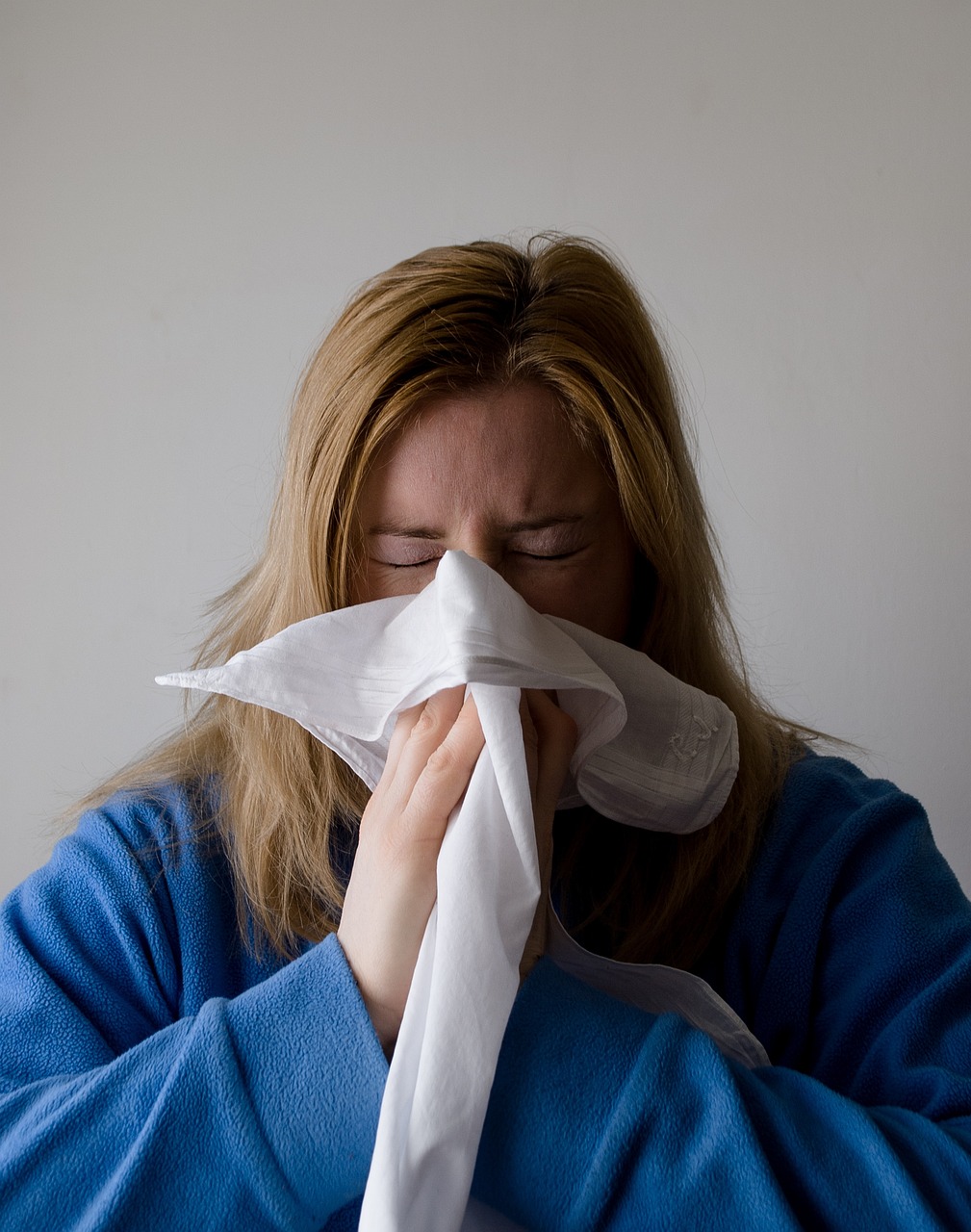Have you ever experienced a runny nose, sneezing, or a scratchy throat that just won’t go away? If so, you’re likely familiar with the common cold.
This widespread respiratory illness affects people of all ages and can disrupt your daily routine.
Understanding the common cold and how it affects your body is essential in managing its symptoms and finding relief.
What is the Common Cold?
The common cold is a viral respiratory infection primarily caused by the rhinovirus.
Other viruses, including coronavirus, respiratory syncytial virus (RSV), adenovirus, and parainfluenza virus, can also lead to a common cold.
It is highly contagious and can be transmitted through airborne droplets or by touching contaminated surfaces.
Is the Common Cold the Same as the Flu? What Are the Differences?
The common cold and the flu (influenza) are both respiratory illnesses caused by viruses, but they differ in their symptoms, severity, and the viruses that cause them.
Common Cold:
- Symptoms: Runny or stuffy nose, sneezing, coughing, sore throat, mild headache, low-grade fever (rare).
- Duration: Typically lasts for a few days to a week.
- Severity: Mild to moderate, with symptoms that are generally manageable.
- Complications: Rarely leads to severe health issues.
Flu (Influenza):
- Symptoms: High fever, body aches, fatigue, cough, sore throat, runny or stuffy nose, headaches, chills, and sometimes gastrointestinal symptoms like vomiting and diarrhoea.
- Duration: Usually lasts around a week, but symptoms may linger for longer.
- Severity: Can range from mild to severe, with the potential for serious complications, especially in vulnerable populations such as young children, older adults, and individuals with underlying health conditions.
- Complications: Pneumonia, bronchitis, sinus infections, and worsening of chronic medical conditions can occur.
It’s important to note that the common cold and the flu are caused by different viruses, with the flu being typically more severe.
Proper diagnosis by a healthcare professional can help differentiate between the two.
What Causes a Common Cold?
The common cold is primarily caused by viral infections.
The most common culprit is the rhinovirus, but other viruses, such as coronavirus, respiratory syncytial virus (RSV), adenovirus, and parainfluenza virus, can also lead to a common cold.
These viruses are highly contagious and can be easily transmitted from person to person.
When an infected individual coughs, sneezes, or talks, tiny droplets containing the viruses are released into the air.
You can contract the common cold by inhaling these infected droplets or by touching surfaces or objects contaminated with the viruses and then touching your nose, mouth, or eyes.
Certain factors can increase your risk of catching a cold, such as:
- Weakened Immune System: People with weakened immune systems are more susceptible to viral infections, including the common cold. This includes young children, older adults, and individuals with chronic illnesses.
- Season: The common cold is more prevalent during the colder months, typically from late fall to early spring.
- Close Contact: Being close to someone with a cold increases the chances of transmission.
- Poor Hand Hygiene: Not washing hands regularly, especially after coming into contact with contaminated surfaces or when in contact with an infected person, can contribute to the spread of the common cold.
What Are the Symptoms of Common Cold?
The common cold presents a range of symptoms, although they may vary from person to person.
Here are the typical symptoms associated with a common cold:
- Runny or Stuffy Nose: One of the most common symptoms is a congested or runny nose. You may experience a clear or slightly coloured nasal discharge.
- Sneezing: Frequent sneezing is another hallmark of a cold. It is your body’s way of clearing irritants from the nasal passages.
- Coughing: A dry or productive cough may develop as the cold progresses. It can be triggered by postnasal drip or irritation in the throat.
- Sore Throat: A scratchy or sore throat is often present. It may be accompanied by discomfort or difficulty swallowing.
- Mild Headache: Some individuals with a common cold may experience a mild headache. However, severe headaches are not typically associated with a cold.
- Fatigue and Mild Body Aches: Feeling tired or experiencing mild body aches can occur, but these symptoms are usually less severe compared to the flu.
- Low-Grade Fever: While a fever is not commonly associated with the common cold, some individuals, especially children, may develop a low-grade fever.
It’s important to note that these symptoms usually appear one to three days after exposure to the virus and gradually improve within a week.
What Are the Home Remedies for Common Cold?

While there is no cure for the common cold, several home remedies can help alleviate its symptoms and promote faster recovery.
Here are some simple and effective home remedies you can try:
- Stay Hydrated: Drink plenty of fluids such as water, herbal tea, clear broths, and warm liquids to stay hydrated. It can help soothe a sore throat, thin mucus and ease congestion.
- Rest and Sleep: Get plenty of rest and ensure adequate sleep to support your body’s healing process. Resting allows your immune system to function optimally.
- Warm Saltwater Gargles: Gargling with warm salt water can help relieve a sore throat. Dissolve half a teaspoon of salt in warm water and gargle several times a day. Remember not to swallow the mixture.
- Steam Inhalation: Inhaling steam can provide temporary relief from nasal congestion and loosen mucus. Lean over a bowl of hot water, cover your head with a towel, and inhale the steam for a few minutes. Be cautious to avoid burns.
- Nasal Saline Irrigation: Use a saline solution or nasal irrigation kit to rinse your nasal passages. This helps to clear mucus, reduce congestion, and moisturize the nasal passages. Follow the instructions carefully when using a nasal irrigation device.
- Honey and Warm Drinks: Mix a spoonful of honey with warm water or herbal tea to soothe a cough or sore throat. Honey has natural antibacterial properties and can provide relief.
- Over-the-Counter Remedies: Over-the-counter (OTC) medications such as decongestants, cough suppressants, and pain relievers may help alleviate specific symptoms.
However, it’s important to follow the instructions and consult a pharmacist or healthcare professional before using any OTC medications, especially if you have pre-existing medical conditions or are taking other medications.
Remember, these remedies help manage the symptoms of the common cold but do not cure the underlying viral infection
When to See a Doctor for Common Cold?
In most cases, the common cold resolves on its own without medical intervention.
However, there are certain situations where it is advisable to contact a healthcare professional:
- Severe Symptoms: If your symptoms become severe or worsen over time, such as high fever, persistent cough, severe headache, or difficulty breathing, it is important to seek medical attention promptly. These symptoms may indicate a more serious respiratory infection or complications.
- Prolonged Symptoms: If your cold symptoms persist for more than 10 days without improvement or if they worsen after a few days, it’s recommended to consult a doctor. Prolonged symptoms may indicate a secondary bacterial infection or another underlying condition that requires medical evaluation.
- High-Risk Individuals: If you or someone you care for falls into a high-risk category, such as young children, older adults, pregnant women, or individuals with weakened immune systems or chronic medical conditions, it is advisable to consult a healthcare professional. They can provide guidance and monitor for any potential complications.
- Concerns about Medications: If you have concerns or questions about over-the-counter medications you are taking for cold symptoms or if you are unsure about their appropriateness for your specific condition, it’s best to consult a pharmacist or healthcare professional for guidance.
- Worsening General Health: If you experience a decline in overall health, such as persistent fatigue, loss of appetite, or significant weight loss, it’s important to seek medical advice.
It’s always better to err on the side of caution and consult a healthcare professional if you are unsure or concerned about your symptoms.
They can provide a proper evaluation, offer the appropriate advice, and determine if further medical intervention is necessary.
How is the Common Cold Treated in the Hospital?
In most cases, the common cold does not require hospitalization as it is a self-limiting illness that resolves on its own.
However, in certain circumstances where complications arise or the symptoms become severe, hospitalization may be necessary.
Here are some treatments that may be provided in a hospital setting:
- Intravenous Fluids: If dehydration occurs due to prolonged illness or inability to consume fluids orally, intravenous (IV) fluids may be administered to maintain hydration.
- Oxygen Therapy: In cases where severe respiratory symptoms or difficulty breathing are present, supplemental oxygen therapy may be provided to ensure adequate oxygen levels in the body.
- Medications: Hospitalized patients with severe symptoms or complications may receive medications to manage specific symptoms. These may include antiviral medications (if the cause of the cold is identified as a specific virus), bronchodilators to alleviate respiratory distress, or other medications to address associated symptoms like fever or pain.
- Monitoring and Supportive Care: Hospitalized patients will be closely monitored to assess their condition and ensure appropriate care. Supportive measures such as rest, proper nutrition, and maintaining a comfortable environment will be provided to aid in recovery.
It’s important to note that hospitalization for the common cold is relatively rare and is typically reserved for cases with severe complications or high-risk individuals who require closer medical supervision.
Can I Use Antibiotics to Treat the Common Cold?
No, antibiotics are not effective in treating the common cold.
The common cold is caused by viruses, not bacteria, and antibiotics are specifically designed to target bacterial infections.
Antibiotics do not have any impact on viruses and cannot cure viral illnesses like the common cold.
Using antibiotics unnecessarily or inappropriately can lead to several issues, including:
- Antibiotic Resistance: Overuse and misuse of antibiotics contribute to the development of antibiotic-resistant bacteria. This means that bacteria become less susceptible to the effects of antibiotics, making it harder to treat bacterial infections in the future.
- Side Effects: Antibiotics can cause side effects such as allergic reactions, digestive issues, and the disruption of beneficial bacteria in the body.
- Unnecessary Cost and Resource Use: Prescribing and taking antibiotics for viral infections, such as the common cold, are unnecessary and can waste healthcare resources and increase healthcare costs.
However, if you develop a secondary bacterial infection as a complication of the common cold, such as a sinus infection or an ear infection, your healthcare provider may consider prescribing antibiotics to address the bacterial component of the illness.
It’s important to follow your healthcare provider’s advice and only take antibiotics when they are specifically prescribed for a bacterial infection.
Instead of antibiotics, focus on managing the symptoms of the common cold with home remedies, rest, and supportive care. This will allow your body’s immune system to fight off the viral infection naturally.





Wonderful job Dr. Taraga
Thank you
It’s amazing piece of work
Thank you